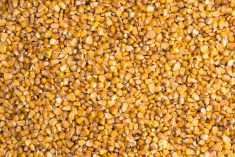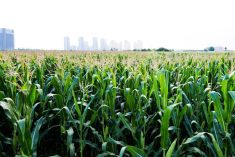CNS Canada — Russia is attempting to crack Algerian wheat markets open, according to reports from Bloomberg news agency.
Russia recently hosted a tour of Algerian officials and plans to send a trial shipment of wheat to Algeria soon, the agricultural agency Rosselkhoznadzor told Bloomberg.
Russian wheat exports to Algeria have previously been limited because of quality issues. If cheaper Russian wheat is successful at gaining more access to Algeria, farmers in Europe, especially France, could lose out.
Algeria is the world’s fourth-largest wheat importer. France is its top supplier.
Read Also

Alberta crop conditions improve: report
Varied precipitation and warm temperatures were generally beneficial for crop development across Alberta during the week ended July 8, according to the latest provincial crop report released July 11.
IGC cuts Australian wheat outlook
The International Grains Council report recently released has cut 1.4 million tonnes more off Australia’s estimated wheat production to 19.1 million tonnes.
Australia produced 21.2 million tonnes in 2017-18, the report stated.
Meanwhile, the IGC report for September increased Russian wheat production to 68.5 million tonnes from the previous estimate of 67 million tonnes.
Total world wheat production for 2018-19 was estimated at 716 million tonnes in the report.
Corn production was forecast at 1.074 billion tonnes globally, up from 1.064 billion tonnes in August.
Soybean production was forecast at 370 million tonnes, up from 366 million tonnes the previous month.
Total grains production was estimated at 2.072 billion tonnes, up from 2.063 billion tonnes in August.
Boost for corn
Scientists have boosted an enzyme called RuBisCO in corn that promises to greatly improve the plant’s efficiency and yield, according to new research released in Nature Plants on Oct. 1.
RuBisCO, scientifically known as Ribulose-1,5-bisphosphate carboxylase/oxygenase, is an enzyme that helps photosynthesis incorporate carbon dioxide from the air into carbohydrates.
By increasing RuBisCO, the plant’s photosynthetic efficiency improves.
“As we move from the greenhouse and into the fields, we hope to eventually observe improved growth and yield in production varieties,” said David Stern, president of Cornell’s Boyce Thompson Institute, where the research is being carried out.
“Turbocharging RuBisCO has the potential to provide a foundation for profound effects on the corn plant’s ability to mature and produce biomass, especially when combined with other approaches,” he said in Science Daily.



















